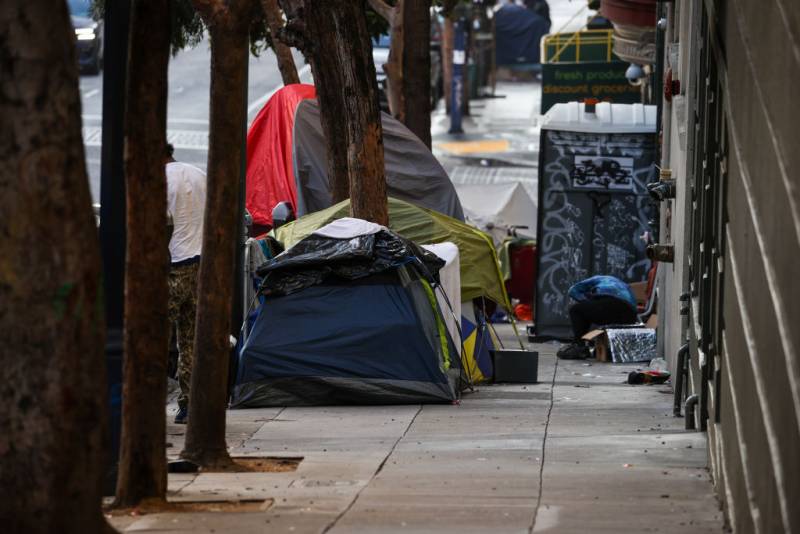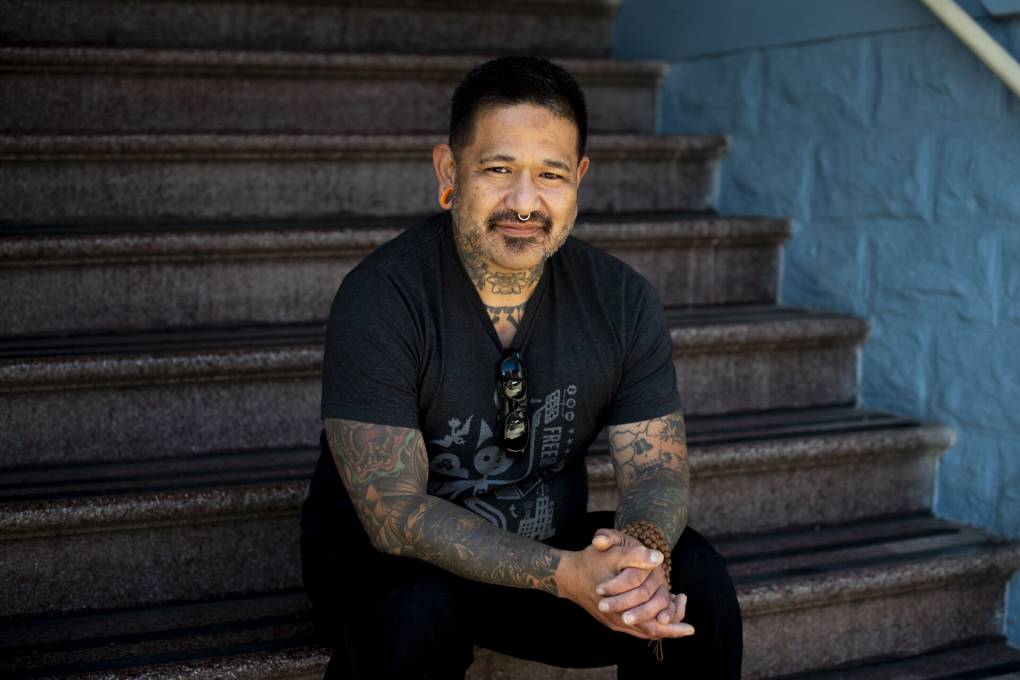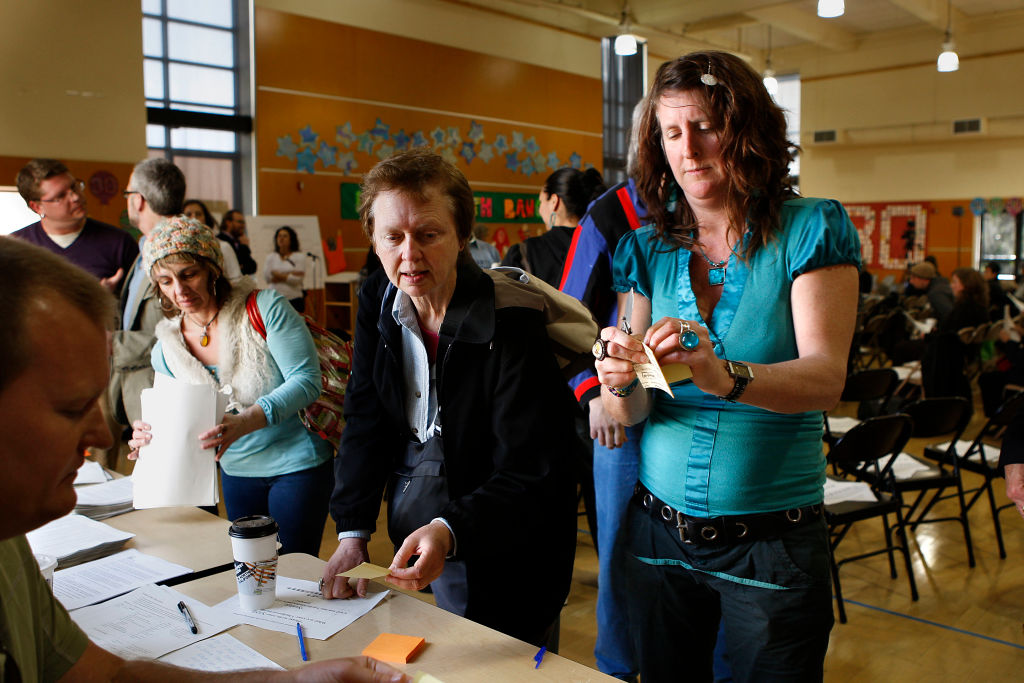Lawyers for unhoused San Francisco residents and their advocates say the city isn’t complying with a court order to stop sweeps of homeless encampments until it has enough shelter beds for those on the streets. It’s the latest in the ongoing lawsuit challenging the city’s homelessness response.
In a motion filed Thursday (PDF), they’re asking the court to take steps to ensure the city doesn’t clear encampments or destroy unhoused people’s property while the suit moves forward. They want the court to appoint a special master to monitor the city’s actions, and require the city to produce sworn compliance reports.
“We’ve been seeing property destruction and we’ve been seeing people being removed from public spaces without offers of shelter,” said Jennifer Friedenbach, executive director of the Coalition on Homelessness, one of the plaintiffs in the suit. “While we’ve seen improvements in the city’s response, we believe that they continue to violate the judge’s order.”



